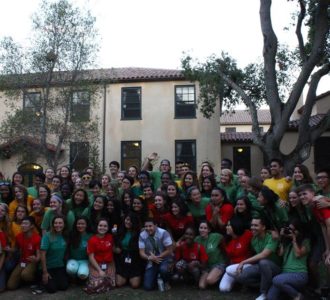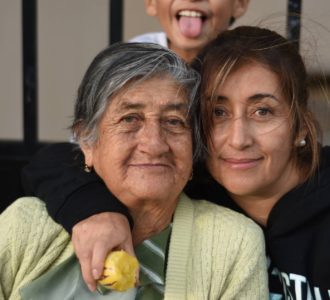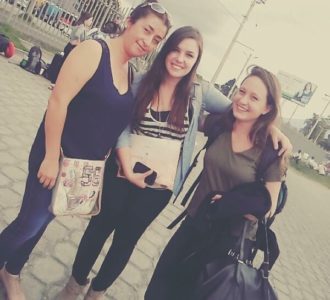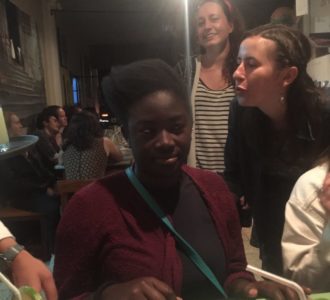The last slide on the powerpoint
presentation that I’m giving to Coach Biggers’ class has the title “What I
learned”, which is followed by three easy bullet points:
• “Global
perspective” – acknowledging and changing my “lens”
• Spanish
• Integrate
the things I like about Ecuadorian culture into my life
Global perspective to me is the
most important, and one of the main reasons I wanted to talk to a high school
class.
I think most people are aware of this idea
that everyone has a “lens” through which they see the world, which is influenced
by any number of things such as age, gender, socioeconomic status, upbringing,
etc. No one sees the world or any given situation in the exact same way,
everyone has their own personal “truth”. In order to understand the world, or
be a “global citizen”, it’s important to be able to change your lens to
understand others’ truths.
I
built this skill a bit in Ecuador, and the example that I gave the class was
the way one might view the history of U.S. petroleum companies in the
Ecuadorian Amazon rainforest. To the majority of Americans, this seems like
obscure trivia, or minutiae. It’s not a common topic in conversation, or something
that anyone thinks about with any real degree of frequency. On the other hand,
to some groups who have been in the Amazon for thousands upon thousands of
years, it’s their daily struggle. They’ve been fighting American petroleum companies
like Chevron and Texaco for their entire lives. It’s something they think about
every day because it is a direct threat to their homeland, their culture and
their way of life.
I
know that it’s impossible to know every issue that effects every marginalized
group in the world and my role in it, but it’s important at least to
acknowledge that such issues exist, and that many people see the world through
a completely different lens than my own. And it’s important for me, and for
everyone, to be able to temporarily change our lenses and see the world in
someone else’s way – to understand their reality and their truth. That’s what
global citizenship is – expanding your sphere of responsibility to encompass
all of the world’s people, the ability to recognize when your behaviors may
affect someone across the world that you will never know, the ability to
understand how other people see you and world issues and why. It’s important
because it’s the first step to collectively solving the problems that we are
facing internationally as a global society: poverty, starvation, epidemics,
human rights violations, extremism, violence, racism, war. You can’t “fix” or “help”
someone or something you don’t understand.
That
was the whole point. To meet people and try to build my understanding, to
improve myself to maybe one day be of use in a struggle that is much bigger than
myself. And it’s easy to get lost in the personal things, our “experience” and
what we did and how difficult it is and was and will be for us to adjust. It
was about us, about our personal growth. But hopefully, eventually, it’ll help
us figure all this other shit out.
Thanks
to everyone I’ve met and who’s supported me and grown with me and been there
for me along the way – I’m looking at you Imbabura fellows (DESIRE, BENNETT,
AUSTIN, SANTI, MADI, MAX, SOUM, ANNA I
LOVE YOU ALL) and Lisa, for believing in me even when I don’t, Daniel, ya
sabes, my families (both host and biological, who gave me the chance to do all of this in the first place), my FRIENDS both Ecuadorian and estadounidenses who come all the way to see me (I'm lookin at you Emma), my students and coworkers, all
the Ecuador fellows, I’m not going to write all your names but I love y’all,
the entire global cohort and GCY staff. I’m filled with a lot of gratitude for
having gotten the chance to meet you all. So thank you, seriously.




